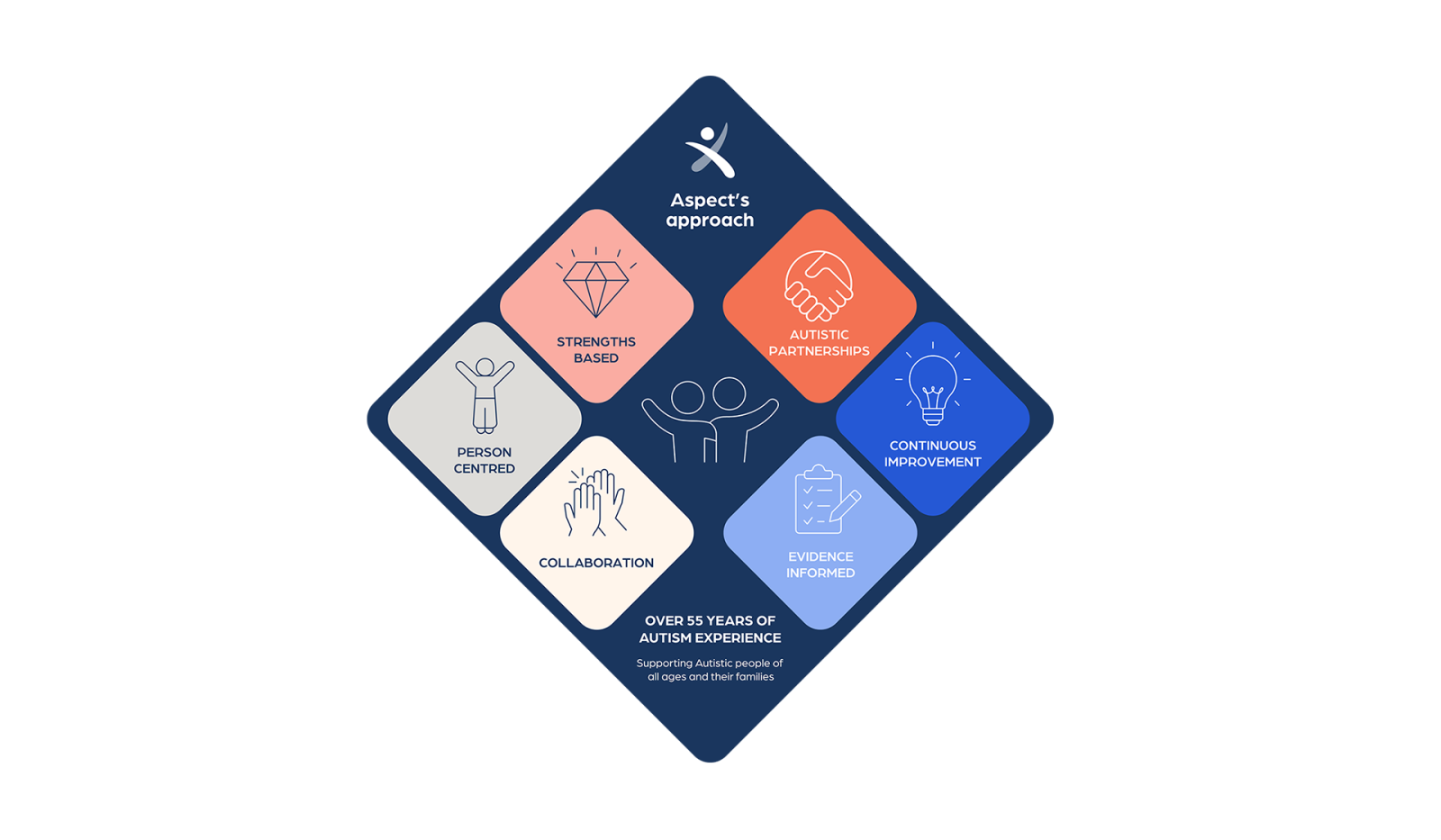Aspect's approach describes the principles that guide how we provide high quality supports and services to Autistic participants, students and their families/carers.

Aspect's solid foundation
Aspect's approach draws on our 55 years of expertise in supporting Autistic people of all ages and their families and carers.

We focus on the individual
We learn how each Autistic person experiences the world, using their strengths, interests and aspirations to shape individualised supports.

Six principles guide our practice
Our practices are underpinned by the latest evidence, guided by input from the individual and their support network, and are continuously adapted to meet each person's unique needs.
Principles of practice
- Autistic partnerships: We embed Autistic perspectives in everything we do, ensuring our services, research and governance are shaped by lived experiences.
- Strengths based: We focus on individuals' abilities and interests.
- Person centred: We put the person at the centre of everything we do, tailoring supports and services to each individual's unique needs.
- Evidence informed: We use research to guide and shape our practices.
- Collaboration: We prioritise the views and preferences of Autistic individuals while working with their support networks to gain a well-rounded understanding of their needs, strengths and goals.
- Continuous improvement: We evaluate our practices to find ways to improve our supports and services.


